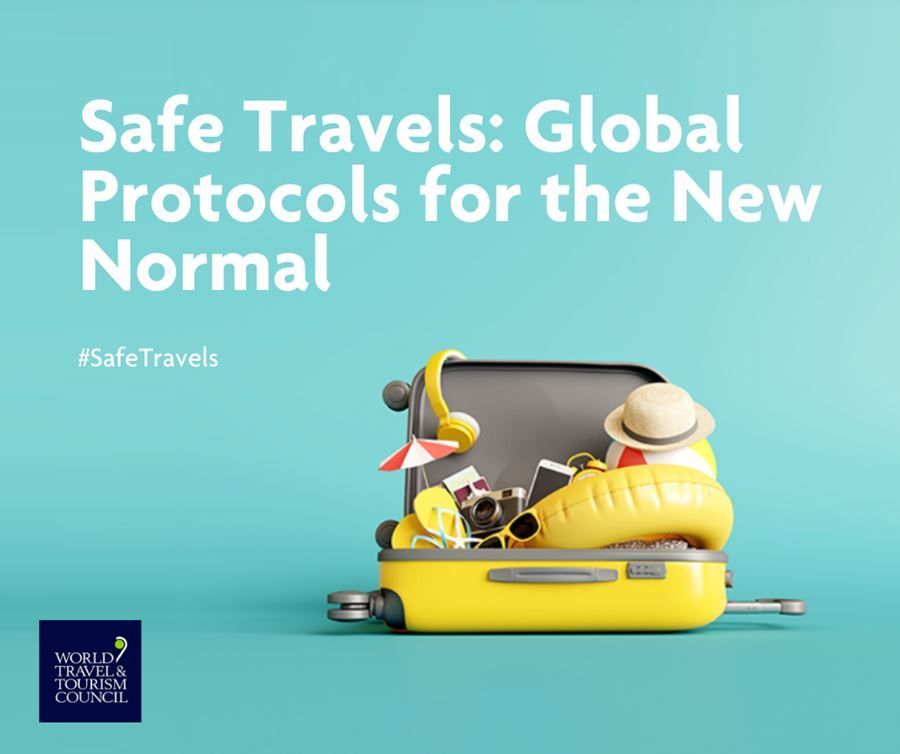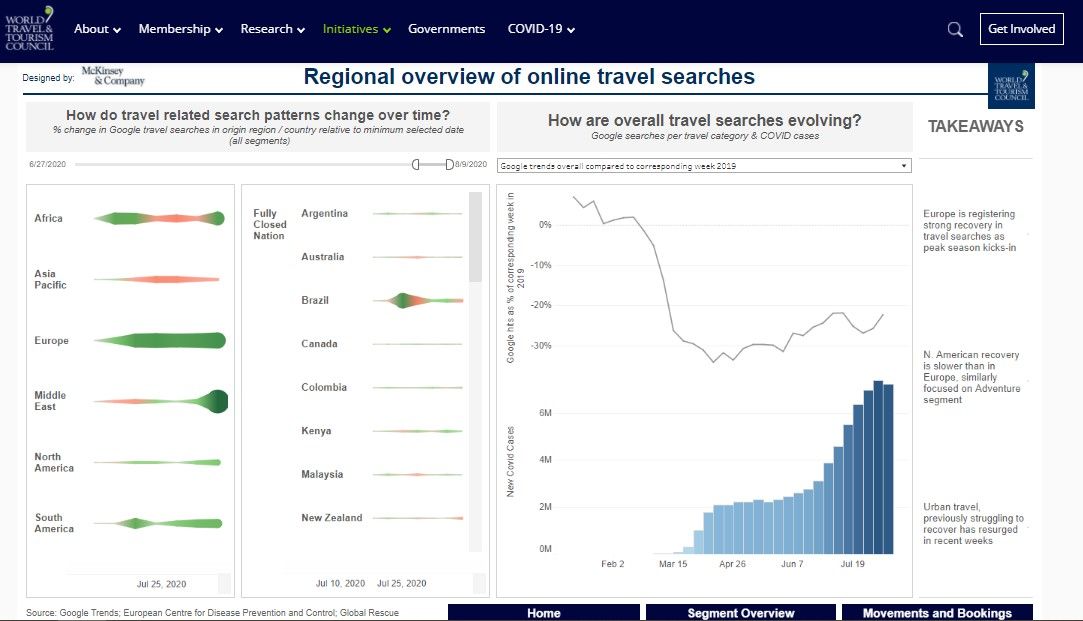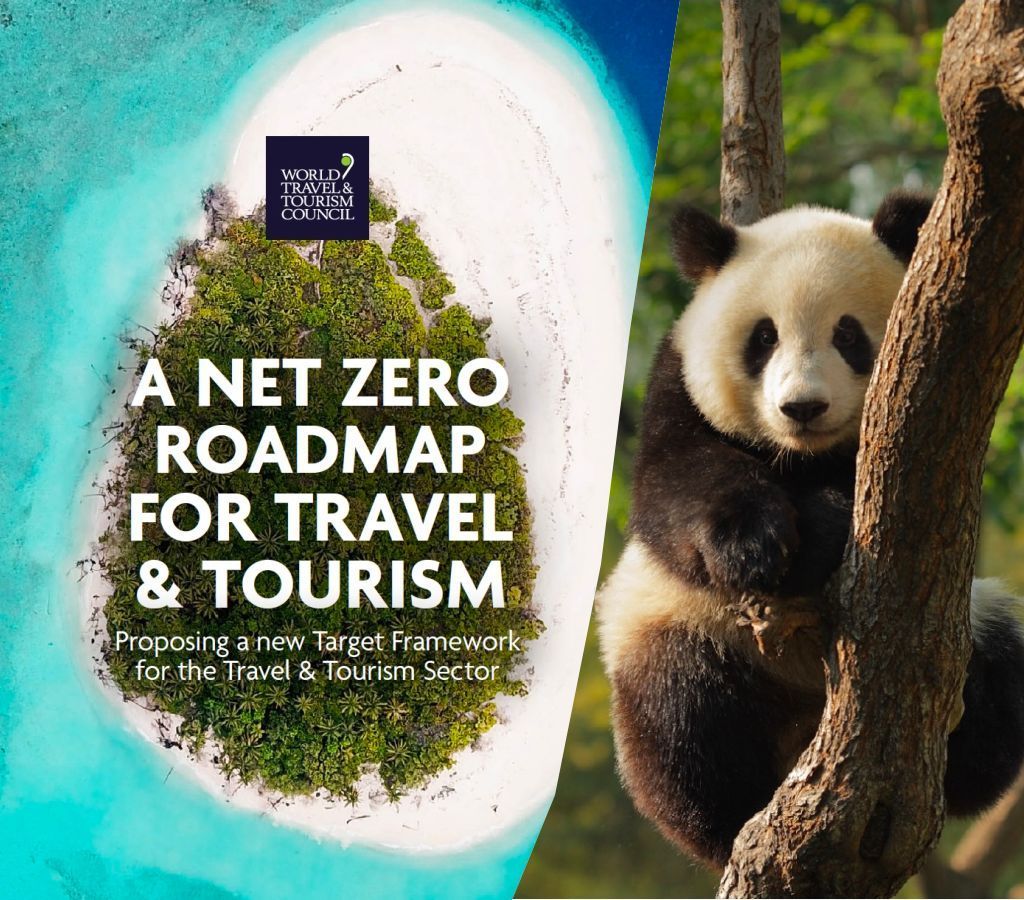World Travel & Tourism Council (WTTC), which represents the global Travel & Tourism private sector, says the massive decline in the number of international travelers and tourists visiting the U.S due to the COVID-19 pandemic, could result in international visitor spending dropping by a staggering 79%.
A devastating $155 billion looks set to be lost from the U.S. economy due to the collapse of international travel during 2020, according to the latest research conducted by the WTTC.
This catastrophic loss to the American economy equates to a shortfall of $425 million a day, or nearly $3 billion a week, to the country’s economy.
WTTC and its Members recently called upon President Donald Trump and the other leaders of the G7 countries, urging for a coordinated approach to be taken in leading the recovery response to the crisis.
The harsh impact on U.S. Travel & Tourism is laid bare by WTTC as the economic fallout from coronavirus continues to burn its way through the sector. Nearly 12.1 million jobs in the U.S. supported by Travel & Tourism are at risk of being lost in a ‘worst case’ scenario mapped out by WTTC economic modelling.
According to WTTC’s 2020 Economic Impact Report, during 2019, Travel & Tourism was responsible for 16.8 million jobs in the US, or 10.7% of the country’s total workforce. It also generated $1.8 trillion, or 9% to the American economy.
Gloria Guevara, WTTC President & CEO, said: “The economic pain and suffering caused to millions of households across the U.S, who are dependent upon Travel & Tourism for their livelihoods, is evident from our latest shocking figures.
“The lack of international visitors to the US due to the pandemic could wipe out more than $155 billion from the US economy alone – a loss of $425 million a day – from which it may take years to recover. It could also threaten New York’s position as one of the world’s premier hubs for business and leisure travel.
“International coordination to re-establish transatlantic travel would provide a boost for the Travel & Tourism sector. It would benefit airlines and hotels, travel agents and tour operators and revitalise the millions of jobs in the supply chain which are dependent upon international travel across the Atlantic.
“We urgently need to replace blanket quarantine measures with rapid, comprehensive and cost-effective test and trace programmes at departure points across the country. This investment will be significantly less than the impact of blunt quarantines which have devastating and far-reaching socio-economic consequences.
“The recent $750 million deal with Abbott labs for $5 rapid test is very promising in this respect, and we hope that it allows the U.S to continue to reopen and can prove as a blueprint for a way forward for other countries. Targeted test and tracing will help rebuild consumer confidence to travel.
“A fast turnaround test and trace system in place for all departing passengers means that governments could consider reinstating travel between America and major international hubs, a move which would help kick-start the economic global recovery.”
WTTC analysis of international travel spending in the U.S during 2019 reveals it reached $195.1 billion, accounting for 16% of the total tourism spend in the country. Domestic travel spending last year was responsible for the other 84%.
A further breakdown reveals how crucial spending from international travellers during 2019 was to the economy. Every month it accounted for nearly $16.3 billion, or $3.7 billion a week – and an incredible, $534.5 million a day.
Between 2016 and 2018, the largest inbound source markets to the US were travellers from Canada and Mexico, accounting for 26% and 24% of all international arrivals respectively, with the UK coming in third with 6%, and Japan in fourth place with 5%.
Data for 2018, which is the most up-to-date available, shows how New York City is particularly dependent on international visitor spending compared to the U.S. as a whole. It accounted for 45% of all tourism spending in the city, with domestic tourists making up the remaining 55%.
The UK was the most important source market for the city with almost one in 10 of all international arrivals (9%), with China in second place with 8%, and Canada and Brazil in joint third place with 7% of arrivals.
The loss of this international visitor spending could have a profound long-term impact on New York for many years to come.
According to WTTC’s 2020 Economic Impact Report, during 2019, Travel & Tourism was responsible for one in 10 jobs (330 million total), making a 10.3% contribution to global GDP and generating one in four of all new jobs.















